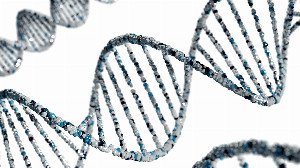Editors, Environment
Front matter - Volume 1 (2) 1934 - Science, Culture, and Education
Introduction
Front matter - volume 1 (2) 1934 - science, culture, and education. This text explores the vital connection between science, culture, and education. It emphasizes that scientists often value classics and literature, advocating for a broad understanding beyond specialized research.
Abstract
"I have yet to meet a scientist who prides himself on his ignorance of the classics; I have met many who had a far sounder appreciation of the great literary works of the past than had their contemporaries who received purely a so-called cultural training ; and I meet some who have maintained their familiarity with the Ancient Authors and are able to quote Latin or Greek for their purpose. Most people who have specialised in scientific work draw freely upon the storehouse of the past, maintain particularly an interest in the history of the development o.f science, and regret that they have not more time to spend in reading and thinking outside their specialised researches. We regret also that there are people trained as specialists in certain branches of scienee who are uncultured, not only in that they are unfamiliar with the ancients, but that they are unacquainted even with the best in modern literature.
Review
This "Front matter" piece, published in Volume 1 (2) of "Science, Culture, and Education" in 1934, serves as a compelling introductory statement setting the intellectual tone for the nascent journal. The abstract immediately plunges into a passionate defense of the culturally-aware scientist, challenging the common stereotype of the narrow specialist. It articulates a powerful perspective on the essential integration of scientific endeavor with broader humanistic and literary understanding, arguing that true intellectual depth requires engagement beyond one's specialized domain. The author's arguments are strikingly clear and declarative, presenting a nuanced view of the scientific community of the era. The text highlights a surprising appreciation among many scientists for classical literature and ancient authors, often surpassing their "culturally trained" contemporaries. It acknowledges scientists' keen interest in the history of their own fields and their stated desire for more time for expansive reading outside their specialized researches. Crucially, the abstract critiques the "uncultured" specialist, not merely for a lack of classical knowledge, but for an unfamiliarity even with the best of modern literature, thus broadening the definition of cultural literacy beyond ancient texts. As a foundational statement from a journal focused on the nexus of science, culture, and education, this piece likely intended to provoke thought and guide its readership towards a more holistic intellectual pursuit. While presented as an opinion rather than a research finding, its message resonates powerfully, even nearly a century later, in contemporary debates about interdisciplinary studies, the "two cultures" divide, and the importance of well-rounded education for scientists. It stands as a valuable historical artifact, encapsulating a significant pedagogical philosophy that championed the cultured scientist, urging a continuous dialogue between specialized scientific inquiry and the vast storehouse of human knowledge and artistic expression.
Full Text
You need to be logged in to view the full text and Download file of this article - Front matter - Volume 1 (2) 1934 - Science, Culture, and Education from Environment : a magazine of science .
Login to View Full Text And DownloadComments
You need to be logged in to post a comment.
Top Blogs by Rating
Electro: The Art of Engineered...
By Sciaria
Your Dynamic DNA: The Adapting...
By Sciaria
The Immortal Jellyfish: Unlock...
By Sciaria
Favorite Blog
Unseen Engineers: Nanotech's B...
By Sciaria
Unleash Your Inner Recess: The...
By Sciaria
Ops Debt: Unmasking the Silent...
By Sciaria





